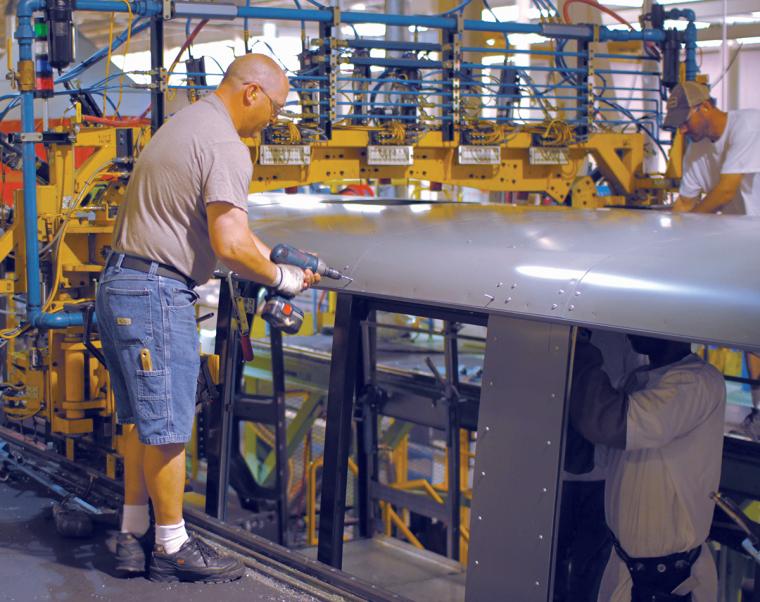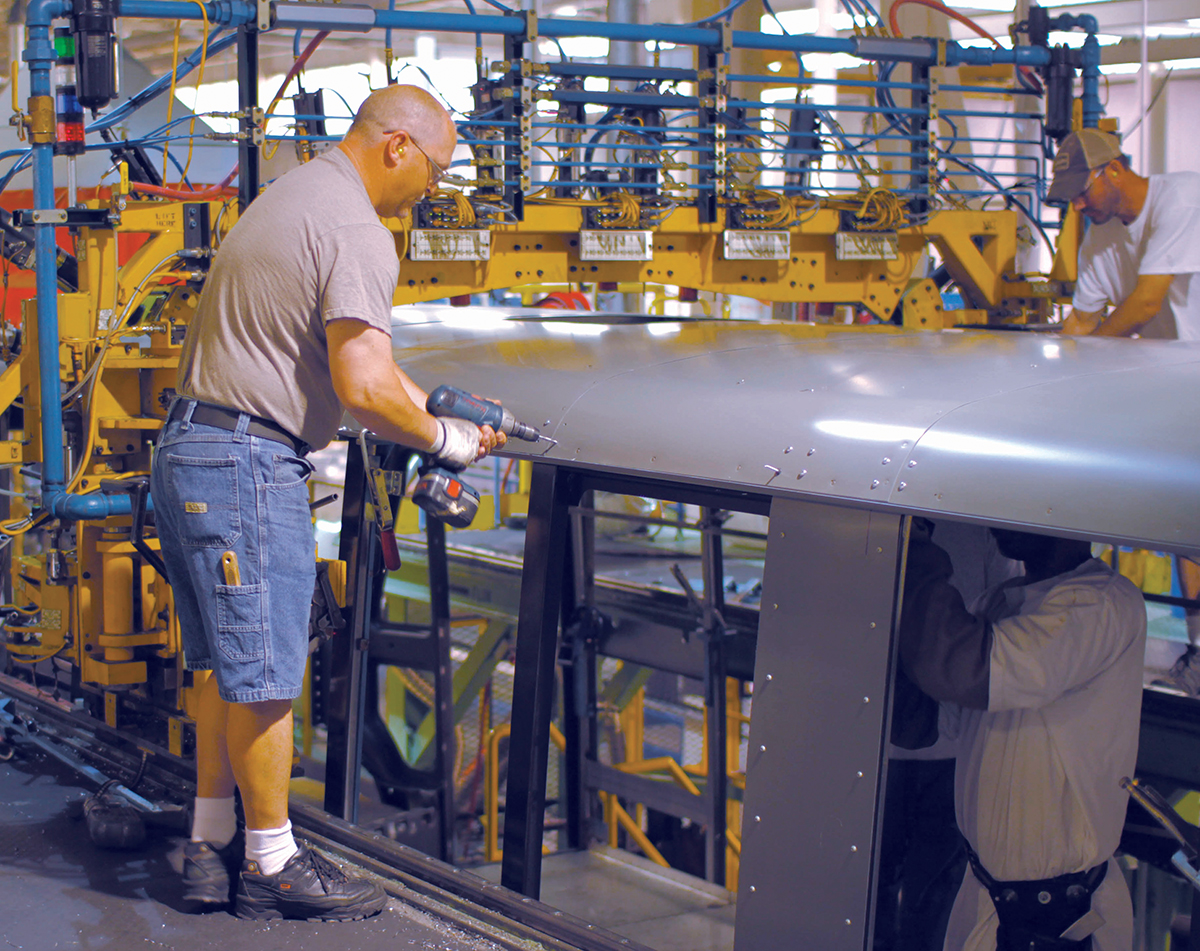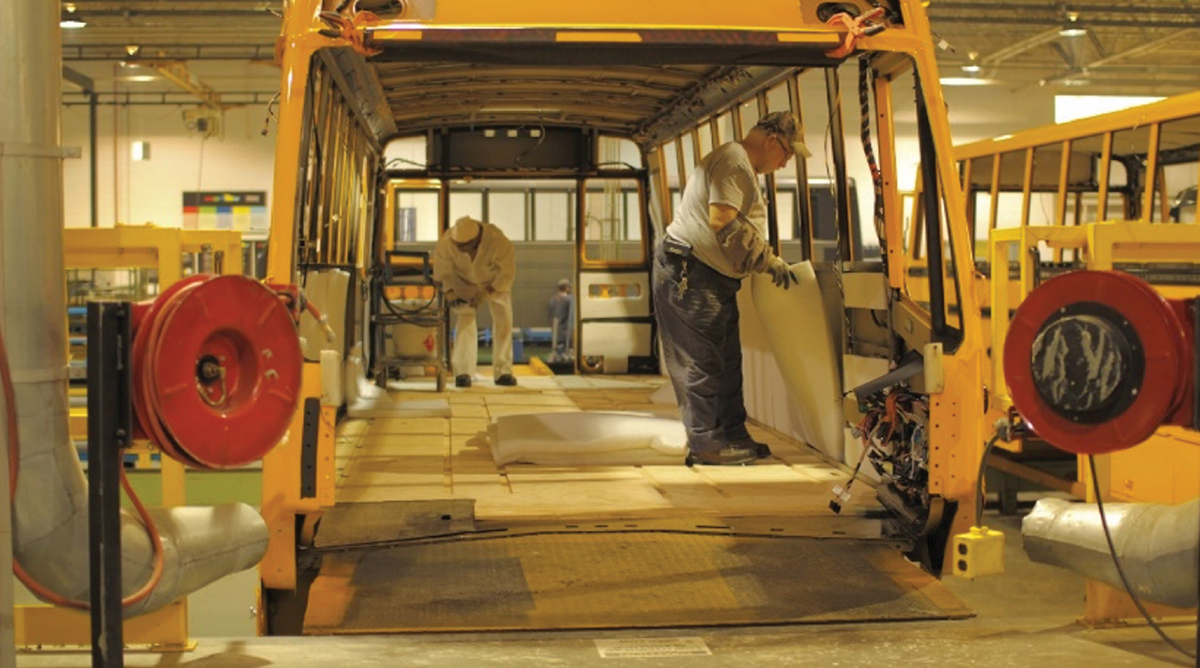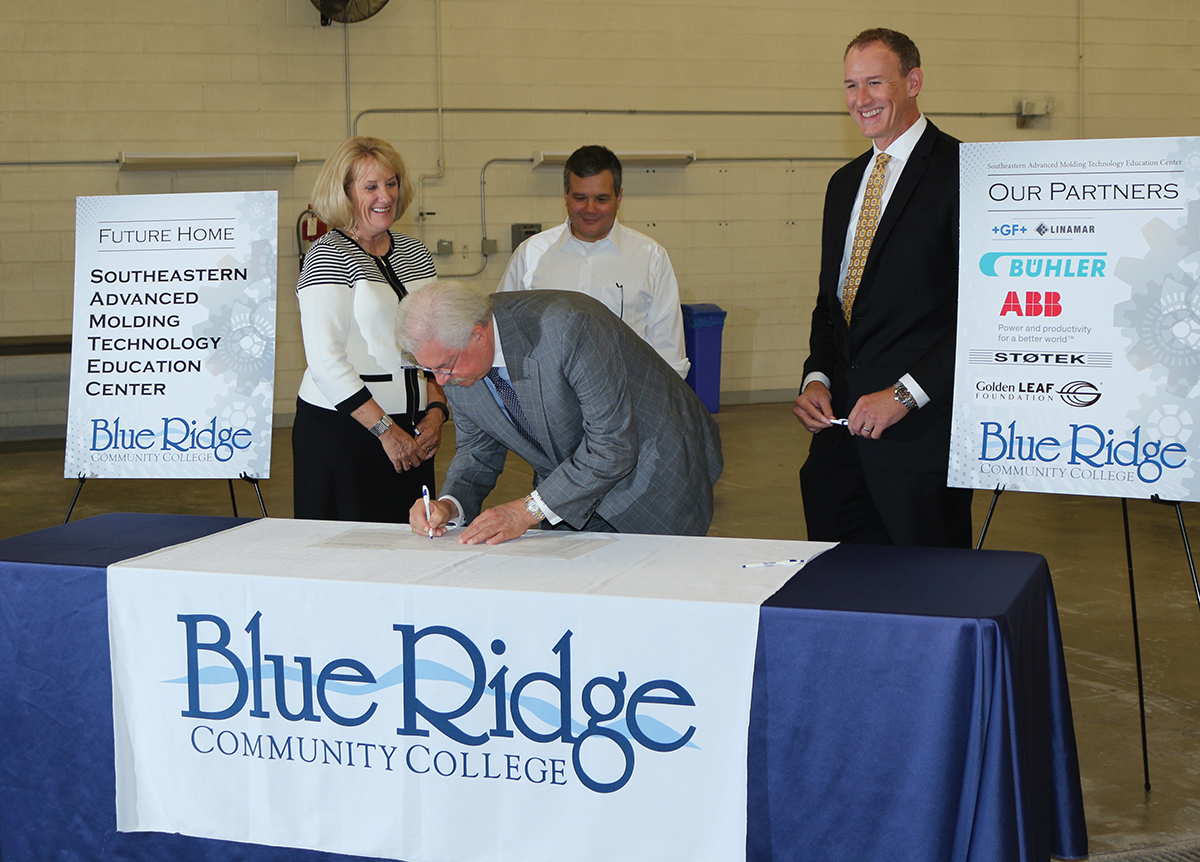

Employment in the state’s automotive manufacturing cluster grew 22 percent between 2012 and 2016, and now encompasses more than 26,000 people working for 290 companies.
For example, High Point, North Carolina-based Thomas Built Buses, America’s largest school bus manufacturer producing over 16,000 vehicles a year, has grown its workforce by more than 50 percent over the past six years and now employs more than 2,000 people. “Our growth has come through expansions in our capacity, our market share and the overall size of the school bus market – but our success really comes from a culture of quality ingrained in North Carolina workers,” company CEO and President Caley Edgerly said.
The state’s tally of automotive manufacturing workers should continue to climb, as cutting-edge automotive component manufacturers and their suppliers have recently announced plans to expand or locate new operations in the state.
In addition, North Carolina has made its high-octane business climate even more attractive to automotive and other manufacturers in recent years, through business-friendly changes to its tax structure and incentives.
Skilled Workforce and More
Thirty-four of the top 150 automotive parts manufacturers in North America have significant operations in North Carolina. The state’s diverse automotive manufacturing cluster includes heavy duty truck, body and trailer, engine and transmission, seating and interior trim, brake systems and more.
Companies choose North Carolina for its quality of life, affordable costs of living and doing business, skilled manufacturing workforce, strategic Central East Coast location, highly appealing tax and regulatory environment and a strong transportation infrastructure that includes extensive rail, roadways and interstates, as well as four international airports and two deepwater ports.

The state’s manufacturing tradition and workforce assets particularly appeal to automotive component manufacturers expanding or opening plants in North Carolina. Take, for example, GKN Driveline, a global leader in all-wheel drive (AWD) technologies that is investing $179 million and adding more than 300 new jobs at its locations in Alamance, Catawba, Lee and Person counties.
“North Carolina is an important part of our strategy, with strategically located facilities and an outstanding workforce,” GKN Driveline CEO Phil Swash said last year when announcing the expansion.
The news came roughly a year after his company, a unit of UK-based global engineering business GKN, completed a $100 million expansion of its Newton, North Carolina, plant.
GKN Driveline, whose cutting-edge technologies are featured in vehicles such as the Jeep Renegade, Range Rover Evoque and Volvo XC90 is shifting its production into a higher gear to meet expected growth in the North American market. All-wheel drive system sales in North America are projected to reach three million units a year by 2020, a 20 percent increase over the 2.4 million units sold in 2015.
GF Linamar also stressed North Carolina’s workforce resources, as well as its proximity to leading automakers in the Southeast, when it chose Henderson County for its $271 million aluminum die-casting plant that will start production later this year and ultimately employ 350 people.
The company, a new joint venture of Switzerland-based GF Automotive and Canada-based machining specialist Linamar Corp., will supply powertrain, driveline and structural components to the North American automotive industry. The plant will use cutting-edge technology to produce lightweight aluminum automotive parts that improve vehicle fuel-efficiency.
“There are few equivalent die-casting operations that exist in the U.S., although there are plenty of iron-casting facilities,” said Andrew Tate, president of the Henderson County Partnership for Economic Development. “So the company knew that wherever they located, they would have to do training.”
To address that need, Blue Ridge Community College created the Southeastern Advanced Molding Technology Education Center (SAMTEC) at the school’s Henderson County campus. SAMTEC will train existing and potential employees of GF and other area manufacturers in high-pressure die cast of aluminum parts, as well as the production of a wide variety of plastic products through injection molding and extrusion processes. SAMTEC is the only holistic, high-pressure die-casting and mold training center east of Illinois, according to the college, and center instructors have traveled to GF’s Austria plant to learn its processes.

Other significant automotive sector expansions announced in North Carolina over the past 18 months include: KSM Castings USA’s 80-job, $80 million expansion in Cleveland County; Keihin Carolina System Technology’s 42-job, $13 million expansion of its Edgecombe County automotive electronics assembly operation; automotive seal maker KACO USA’s 100-job, $8.4 million plant expansion in Lincoln County; and Magneti Marelli Powertrain USA’s 76-job, $12 million plant expansion in Lee County.
The Promising Road Ahead
The state is continuing to build on its strong foundation for automotive and other manufacturers. Most notably, it recently reduced its corporate income tax rate from four percent to three percent, the lowest rate among all 44 states with the levy, and cut the personal income tax from a flat rate of 5.75 percent to 5.49 percent.
In 2018, the state is taking another significant step to support manufacturers by fully implementing single sales factor apportionment for multistate corporations. Effective January 1, the state will determine how much of a corporation’s income is subject to state tax based solely on its revenue from North Carolina sales. It will no longer factor in a company’s property and payroll in the state.
The single sales factor approach encourages corporate expansion and job creation because it doesn’t penalize companies for hiring or investing in facilities.
In addition, North Carolina has bolstered its flagship incentive program, the Job Development Investment Grant, to boost financial support available to large-scale manufacturing projects, such as an auto assembly plant.
Projects that invest at least $500 million and create more than 1,750 jobs can win grants worth up to 100 percent of the personal income tax withholdings associated with the new jobs for 20 years. North Carolina also has four available megasites, ranging in size from 1,400 acres to 2,300 acres, to meet the needs of mega-manufacturers. T&ID

